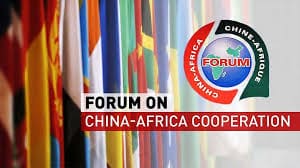The China-Africa Summit which runs from September 4th to 6 presents an opportunity for African countries to stake their individual and collective claims for Beijng’s undivided attention and the latter will almost certainly do the same to leaders already gathering there.
It is usually hosted alternately by China and an African member with the exception of 2021 when the forum took place via online thanks to the outbreak of COVID which was raging at the time
This year’s summit has many things riding on it including debt management, climate change and the changing face of Africa’s geopolitical landscape on the one hand and China’s own position and role in the world’s shifting power dynamic.
The world has come a long way from the 1990s when proddings by African countries led to the creation of the Forum on China-Africa Cooperation.
By then China’s was still emerging as the next economic powerhouse in the world and Africa looking to diversify her diplomatic engagements looked east as relations with the West continued to unravel.
Thirty odd years later China is the world’s second most powerful economy and a military superpower to boot, taking a leading role within FOCAC, a body converted into an instrument with which to establish and deepen its growing influence in Africa and beyond.
It was merely following in the footsteps of other world powers who had established similar platforms to stamp their indelible footprints on the continent.
The EU-Africa Summit, the Turkey-Africa Summit, the India-Africa Summit, the France-Africa Summit, and the UK-Africa Summit are glaring examples.
The role of all these summits with Africa is to counterbalance if not neutralise each other’s interest on the continent, which accounts for more than one fifth of the world’s most coveted natural resources.
Like all other platforms wooing Africa, FOCAC is fashioned to strengthen political cooperation between Africa and China informed by five main diplomatic principles namely of mutual respect for each other’s territorial sovereignty, non-interference in the internal politics of members, mutual nonaggression, equality and mutual benefit, and peaceful co-existence.
FOCAC is a channel for resource transfer from China to African members requiring aid, grants, loans and debt cancellation. However Beijing brandishes its One-China policy on Taiwan as a precondition before any of the 53 African countries a a member of FOCAC could access these benefits.
African countries have found China’s non-interference policy very attractive in sharp contrast to what they see as the flagrantly patronising attitude of western powers whose loans are predicated on the democratic and human rights credentials of prosepctive beneficiary governments in Africa.
”China does not judge African governments or grade them in accordance with some foreign democratic rules or standards like the West does to determine their loan-worthiness”, says one observer of Africa-China relations which he explains comes with a different dynamic.
One cardinal FOCAC principle is to respect each member country’s unique development trajectory, according its own peculiar demographic reality, a far cry from Western conditions for aid.
In 2022, China announced a debt forgiveness of 23 interest-free loans for 17 African members of FOCAC a year after such loans reached maturity.
China accounts for 17%, or $134 billion of Africa’s external debt while Beijing’s foreign direct investment (FDI) has been on the increase significantly since 2005.
As Africa’s largest trading partner, China’s trading activities with the continent had reached a whopping $282 billion last year, according to figures from the World Economic Forum website.
FOCAC holds every three years and brings into play a balancing act in the intricate game of interests between 53 African members of the bloc and China which is seen as a welcome alternative to what western nations had to offer the continent in decades gone by.
WN/as/APA


